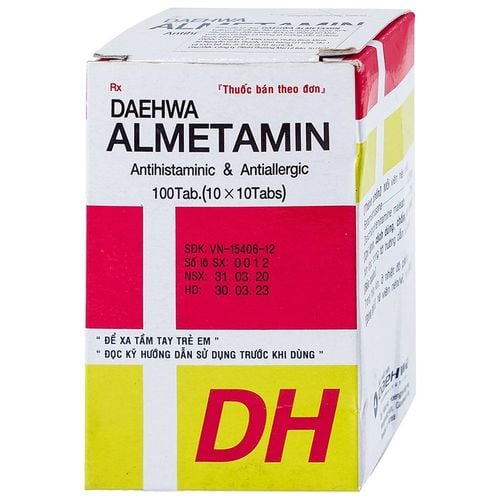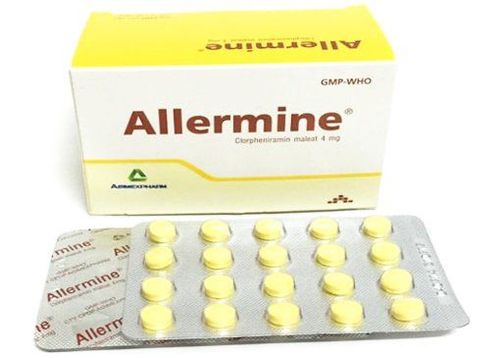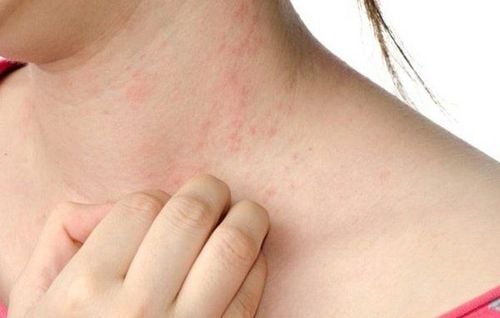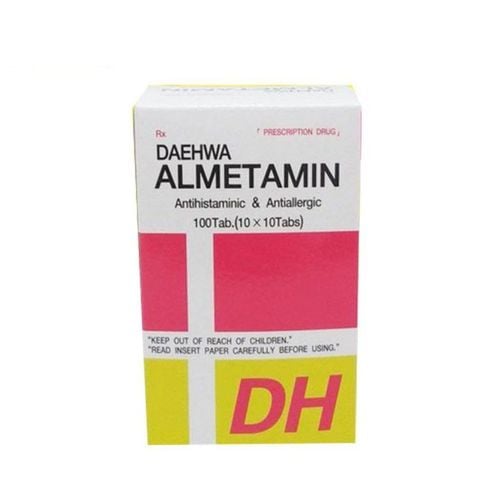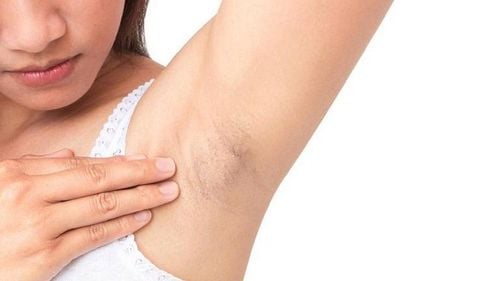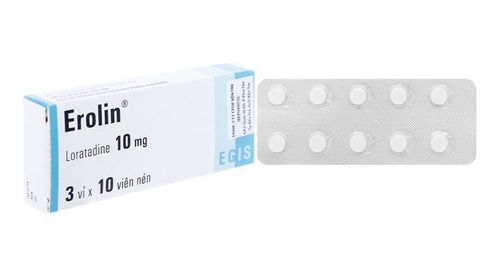For some people, chemicals in shower products, cosmetics, and cleaning agents can trigger allergic skin reactions. Shower gel allergies in infants and adults can sometimes cause the skin to peel, become red, or become itchy and burning.
1. Causes of Shower Gel Allergies
Shower gel allergies occur when the immune system overreacts to harmless chemicals, which doctors often refer to as contact dermatitis. These chemicals can be found in familiar products that you’ve come into contact with many times. Even if you have used these products before, you can still experience an allergic reaction to shower gel.
In addition to shower gel, cosmetics and personal care items also contain many substances that may cause allergies, including:
- Fragranced soap, perfume, deodorants, body lotions, cosmetics, cleansers, and tissues.
- Preservatives and antibacterial agents, added to many solutions to prevent spoilage.
Substances added to thicken, color, or lubricate certain products. - Chemicals in hair dyes and other hair styling products.
- Formaldehyde compounds – found in many nail care product.
- Sunscreen, which is often added to cosmetics like moisturizers, lip balms, and foundations.
- Rubber (latex) products, tattoo ink, henna ink, nickel, or other metals.
2. Symptoms of shower gel allergy
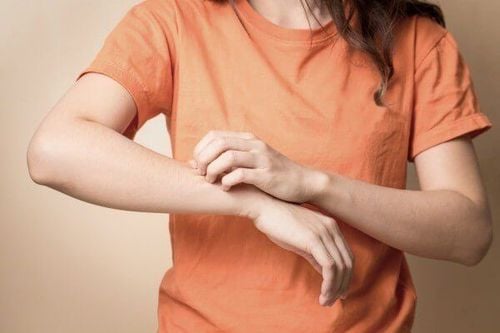
The warning signs of a shower gel allergy often first appear on the skin. Symptoms typically appear within a few hours to a few days after exposure to the irritating chemical. Each person may experience different allergy symptoms, but the most common ones include:
- Skin redness.
- Peeling or flaking.
- Blisters.
- Burning, tingling, or possibly intense itching.
- Swelling of the eyes, face, and genital area.
- Rash or hives.
- Skin sensitivity to sunlight.
- Darkened, rough, and cracked skin.
These symptoms tend to worsen if you continue to be exposed to the allergen.
However, some other conditions can cause similar symptoms to itchy shower gel allergies, so it is important to consult a doctor for an examination to determine the exact cause.
3. Diagnosing shower gel allergy
When should you see a doctor for a shower gel allergy? You should visit a dermatologist for examination and diagnosis in the following cases:
- You have allergic reactions on your skin.
- The skin shows signs of secondary infection, such as pustules, swelling, warmth, or pain in exposed skin areas.
- The symptoms significantly affect your daily life.
- The allergic condition is spreading.
- The allergy occurs on the face or genital area.
- The symptoms do not improve over time.
Typically, doctors can diagnose a shower gel allergy by conducting a health examination and asking questions about the patient's symptoms. Detailed information will help the doctor monitor and diagnose the condition, specifically:
- What you did in the 24-48 hours before the allergic reaction.
- All the cosmetics and personal care products you have been using recently.
- The frequency of using each product.
- The areas of skin that have come into contact with the chemicals, even those without symptoms;
- A history of previous skin allergies.
Sometimes, you may be asked to see an allergy specialist for a skin test, also known as a patch test. The doctor will apply small chemical samples on your back and check if you have an allergic reaction at those sites.
4. Treatment of Shower Gel Allergies
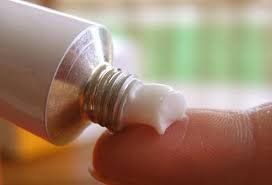
4.1. Mild Symptoms
If your skin experiences only a mild reaction, you can treat it at home with over-the-counter medications and stop using the suspected allergic product.
Additionally, applying a gentle moisturizing lotion can help relieve itching. Cold compresses can also help reduce irritation and provide quick relief.
4.2. Severe Reactions
If you experience frequent or severe shower gel allergies, you should see a dermatologist to identify the cause and receive a prescription for appropriate treatment. This may include:
- Topical glucocorticoid medication.
- Oral medications as needed.
- Antibiotics (if there is an infection).
5. Things to Note When You Have a Shower Gel Allergy
First, it is important to identify and avoid any chemicals that may cause the allergic reactions. If you know that your body is sensitive to a particular ingredient, you should carefully read the labels on skin care products when you buy them later.
Additionally, to prevent and treat shower gel allergies, keep the following points in mind:
- If you accidentally or inevitably come into contact with the product, wash the affected skin with a mild soap and warm water as soon as possible.
- If there is an allergen on your hands, do not touch other parts of your body until you have thoroughly washed your hands.
- Remove and wash any clothing or jewelry that may have come into contact with the irritating chemicals.
- Avoid scratching the allergic area, as it may lead to infection.
- If you are using nail care products, wait until the polish is completely dry before touching other areas of your skin.
In conclusion, shower gel allergies in infants and adults occur when the body is extremely sensitive to an ingredient in skin care products that are generally considered safe. The immune system's response triggers a series of symptoms, including itching, redness, and more.
Identifying the cause and avoiding allergens is the only way to prevent shower gel allergies. If you experience severe symptoms, it is essential to see a doctor for a timely diagnosis and treatment to prevent the condition from worsening.
To arrange an appointment, please call HOTLINE or make your reservation directly HERE. You may also download the MyVinmec app to schedule appointments faster and manage your reservations more conveniently.
Reference source: healthline.com; webmd.com




